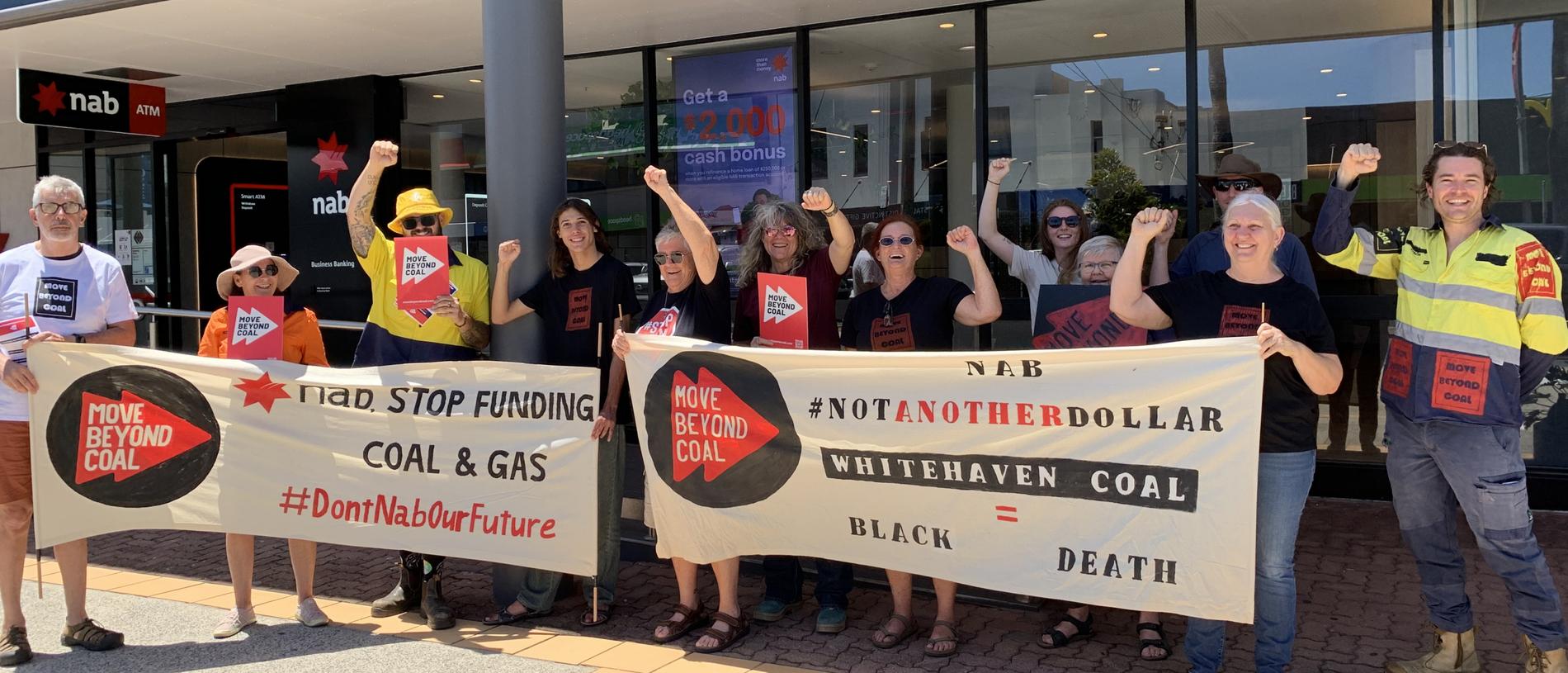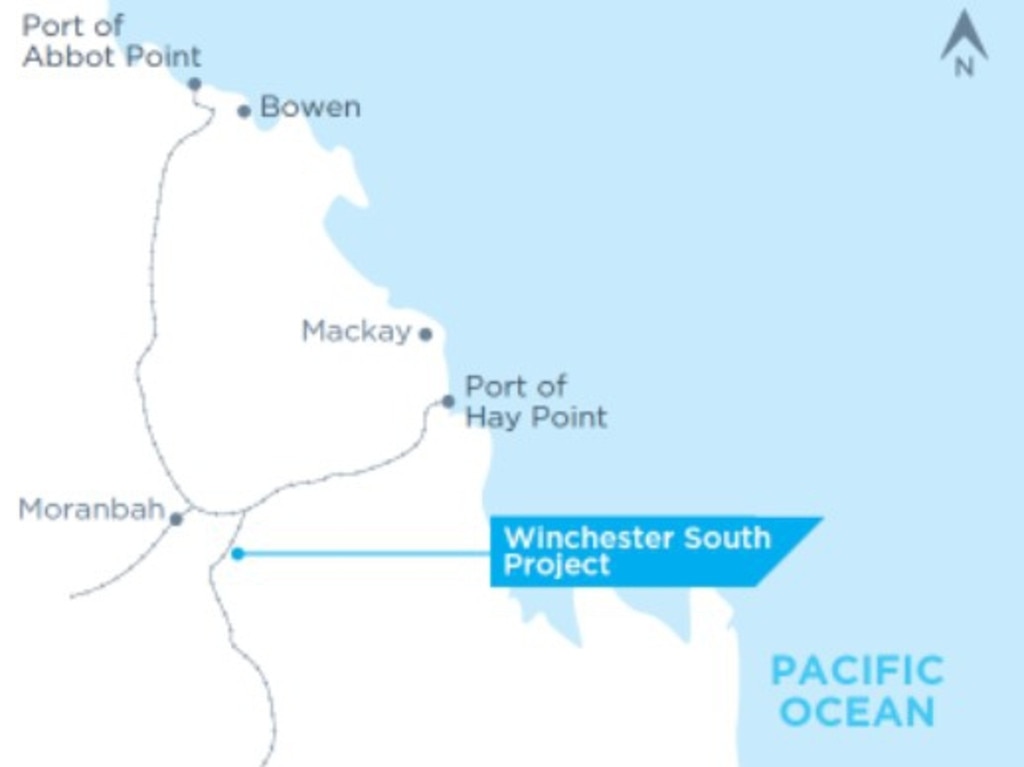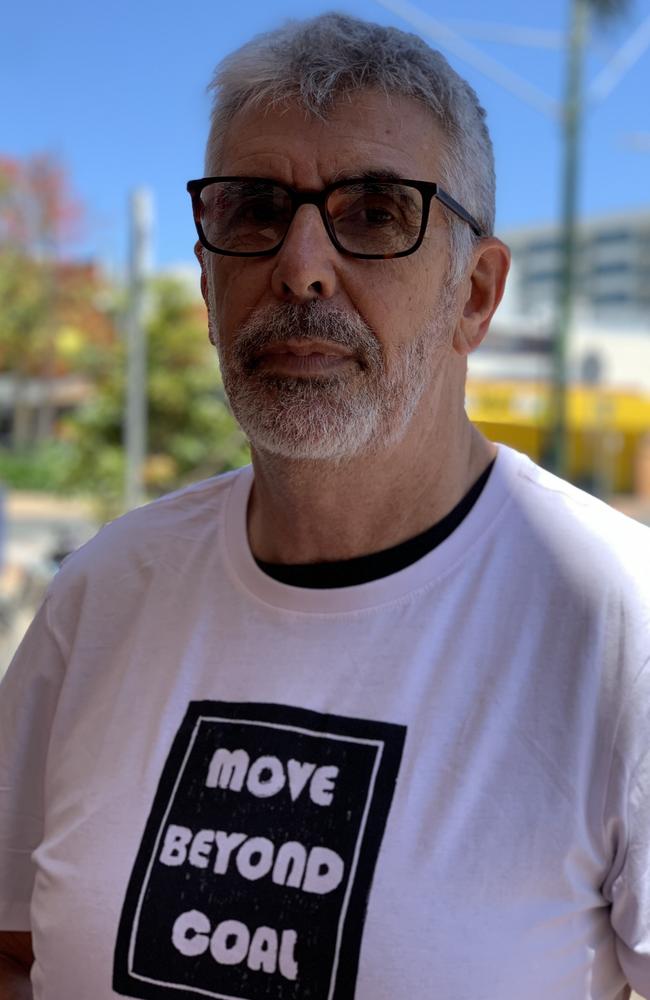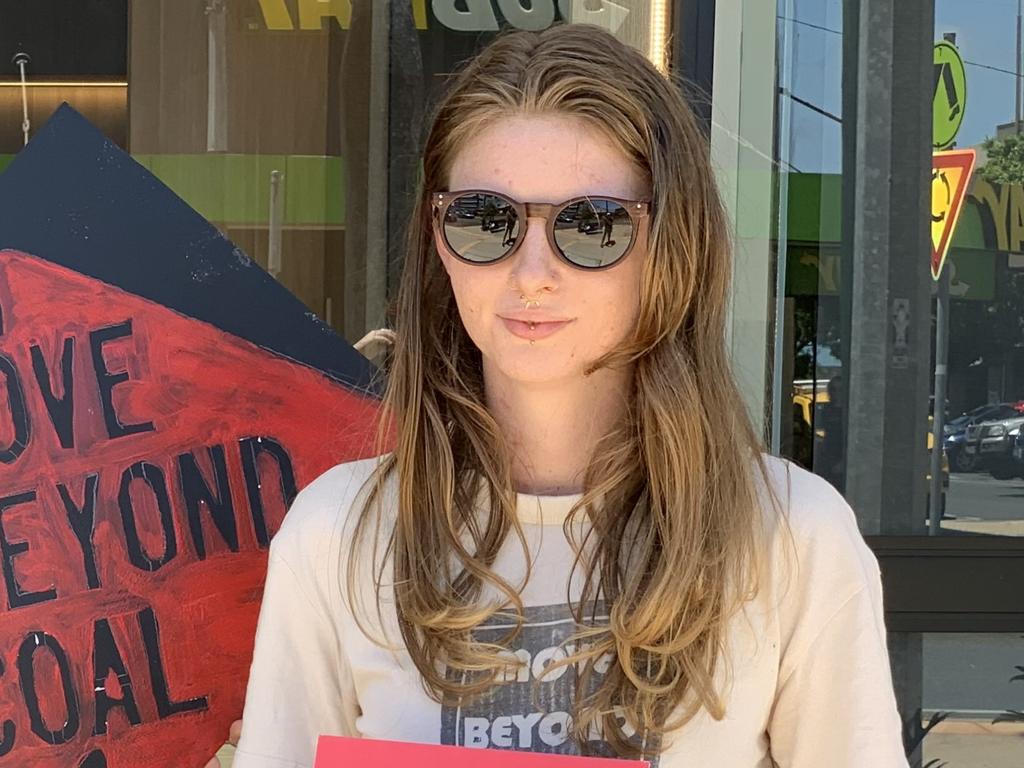Move Beyond Coal rallies against NAB in Mackay
A new movement has grown out of the Stop Adani protests and it’s training its sights on the funding streams that underpin coal’s development. Here’s what the next phase of Queensland’s coal war could look like.
Mackay
Don't miss out on the headlines from Mackay. Followed categories will be added to My News.
In their long-running war on coal, Central Queensland’s environmental activists are training their sights onto a new target: the big banks.
Move Beyond Coal, a grassroots anti-fossil fuel movement with roots in the Stop Adani protests, rallied outside the NAB branch in Mackay last week demanding the finance behemoth end its relationship with Whitehaven Coal, a major metallurgical and thermal coal producer with assets in NSW and a proposed $1bn project near Moranbah called Winchester South.
Move Beyond Coal claims NAB offered Whitehaven a $110m loan in 2020 and the protesters, holding banners that read ‘Don’tNabOurFuture’ and ‘Whitehaven Coal Equals Black Death’, demanded CEO Ross McEwan cut all further ties with coal producers.
“They (NAB) have agreed to meet the Paris climate agreement, but they are also still backing new coal, so it is a complete contradiction,” former federal Greens candidate Paula Creen said before entering the branch to hand her demands to the manager.

If developed, Winchester South could produce up to 17 million tonnes of coal per year.
The mine would primarily deliver metallurgical coal, which is used in the steelmaking process, but also some thermal coal, used for power generation.
Banks tend to distinguish between metallurgical and thermal coal in their lending policies because there are currently no substitutes for metallurgical coal in steel production, while there are substitutes to thermal coal for energy generation.
It is unclear whether NAB is in line to finance Winchester South.
The protesters could not say with certainty that NAB would back the project and the bank does not comment on specific customers or transactions.
As part of a broad net zero commitment, NAB, Westpac, Commonwealth and ANZ have all adopted policies to reduce their lending exposure to thermal coal.

NAB’s environmental, social and governance policy states the bank will not finance any new thermal coal projects or take on “new-to-bank thermal coal mining customers.”
In response to the rally, an NAB spokesman said the bank had “provided no project finance for any new thermal coal mine project since 2015”.
“We see significant environmental and economic opportunities for our customers and our bank in moving to a low-carbon future,” the spokesman said.
“We continue to be the leading Australian bank for global renewables transactions and support an orderly transition of the energy system, while reducing our exposure to fossil fuels.”
Mackay Conservation Group co-ordinator Peter McCallum, standing outside the branch, said environmentalists had drawn confidence from their campaign against Adani, now Bravus, and its Carmichael Mine northwest of Clermont.

In his view, they succeeded in poisoning the Adani brand and discouraging any further development in the Galilee Basin.
Now he said they would push to close all coal mines “as soon as possible” and stymie any greenfield developments by pressuring the finance streams that underpin them.
“What we don’t want to see is new coal mines adding to the problem (of climate change),” he said.
Whitehaven Coal, which received media attention in March after it supplied 70,000 tonnes of coal to support Ukrainians in their struggle against Russian president Vladimir Putin, has boomed in recent months as a global energy crisis has pushed coal prices to new heights amid tight supply.
Year-to-date, the company’s share price has skyrocketed 191 per cent.
A Whitehaven spokesman said restrictive lending policies for the coal sector were in part responsible for energy shortages.
“The imposition of restrictions on the use of bank debt facilities has accentuated the energy shortages we are seeing around the world and will continue to see because we are not getting the level of investment in the supply side that would typically follow periods of scarcity and higher prices,” he said.
“Unfortunately debt markets have moved their policies quicker than the actual pace of the energy transition, which is to say they are decarbonising faster than their customers without full regard for the energy needs of the world today.”
In response to the energy shock, Germany has restarted mothballed coal plants to maintain stability in its grid.

Move Beyond Coal protester Imogen Lindenberg said it was “important to have a just transition” to a renewables world, but when pressed about the potential need for coal to prop up the grid in the short or medium term and prevent Australia from matching Europe’s experience, Ms Lindenberg said, “no comment”.
Queensland Resources Council chief executive Ian Macfarlane said anti-coal lending policies were putting Australian jobs at risk.
“There is no doubt that as Australian banks pull back from financing legitimate businesses in the resources sector, which employ hundreds of thousands of people directly and indirectly, that local financing is becoming more difficult to access and jobs are at risk,” he said.
“Coal businesses are having to turn to international banks and other types of lenders to obtain financing.
“Australian banks should be supporting Australian enterprises and jobs, it’s as simple as that.
“While foreign financing options are available to mining companies, it is very disappointing that Australian companies are starting to be forced to look elsewhere.”
Mr Macfarlane also said antipathy to thermal coal was a red herring for most Central Queensland coal production.
“For many Central Queensland mines, thermal coal is really a small proportion of Queensland’s coal production and often a by-product of metallurgical coal mining,” he said.
“The primary aim is to extract steelmaking coal, but often the seams of thermal coal overlay the target seam.
“So the thermal coal is mined and recovered but it is essentially a small part of the main business of coking (metallurgical) coal.”
More Coverage
Originally published as Move Beyond Coal rallies against NAB in Mackay









